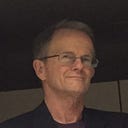Learning Language
Dr. Robert Fettgather is an adjunct professor of psychology at Mission College in Santa Clara California. Originally, an English major, he shifted his focus to psychology at the University of California, Santa Cruz where he studied the psychology of language.
Have you ever wondered about the mysteries of language? Specifically, how do we all learn language in the first place? As children, it appears that we simply learn to speak by listening to others talk. But the process of language acquisition is actually quite complicated
Many scientists argue that what truly sets us apart from other species is our use of language. Behaviorist B.F. Skinner wrote a classic work on language acquisition, Verbal Behavior, and most people, like Skinner, believe we learn language through imitation and reinforcement. But it’s actually far more complex. How do you explain that a child says “foots” instead of feet or “I swimmed”? Here, children are not imitating adults but instead applying (incorrectly) language and grammar rules they have never been taught for singular/plural and past tense. But how?
According to famed psycholinguist Noam Chomsky, humans possess an innate ability to comprehend and produce language through a biological mechanism he called the Language Acquisition Device (LAD). The LAD has an “innate facility” for acquiring language including grammar.
Language development occurs throughout childhood into adolescence and beyond. As adults, we can use language to promote cognitive development. Researchers have found that “exercising” the brain with language based activities such as reading, taking classes, and working on crossword puzzles can help increase the ability of the brain to build and maintain new neurons and connections. This potential for brain growth and repair is called cognitive reserve.
